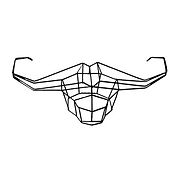THE FIRST APPEARANCE OF INTERPASSIVITY
The theory of interpassivity was born in Linz, Austria, in 1996. From there it traveled in 1997 to Nürnberg (download PDF) and then in 1998 to Berlin (download PDF).
In 2000, it appeared in a book form, to your left) for the first time. And from then on it took off like a storm across humanities and social sciences... and more publications followed.
ORIGINAL ARTICLES ON INTERPASSIVITY
BY ROBERT PFALLER
Pfaller , Robert (2003) "Little Gestures of Disappearance: Interpassivity and the Theory of Ritual" - Journal of European Psychoanalysis, Nr. 16 - Read Online
Pfaller, Robert (2009) "Interpassivity and Misdemeanors. The Analysis of Ideology and the Zizekian Toolbox", International Journal of Philosophy 2012/3 (261)
Pfaller, Robert (2009) Interpassivität, oder: Warum manche Leute keine Agency haben möchten, in: Paragrana. Internationale Zeitschrift für Historische Anthropologie, Bd. 18, Heft 2: 47-56
Pfaller, Robert (2015) Über das Ungute am Genuss. Warum wir ihn nicht selbst haben wollen und ihn aber doch nicht ganz lassen können, in: Silvan Wagner (Hg.): Interpassives Mittelalter? Interpassivität in mediävistischer Diskussion, Frankfurt/M.: Peter Lang, 23-36
Pfaller, Robert (1996) Um die Ecke gelacht. Kuratoren nehmen uns die Kunstbetrachtung ab, Videorecorder schauen sich unsere Lieblingsfilme an: Anmerkungen zum Paradoxon der Interpassivität, in: Falter 41/ 96, S. 71 - download PDF
Pfaller, Robert (1998) The Work of Art that Observes Itself. Eleven Steps towards an Aesthetics of Interpassivity in: Centro de studiis por la scultura publica ambiental (ed.): Presencias en el espacio publico contemporaneo, Barcelona 1998 (in English, German, Spanish and Catalan), pp. 25-48 (German version)/ pp. 229-240 (English version)
Pfaller, Robert (2002) Das Kunstwerk, das sich selbst betrachtet. Elf Schritte zu einer Ästhetik der Interpassivität, in: G. Schweppenhäuser/ J. H. Gleiter (Hg.): Rückblick auf die Postmoderne. Philosophische Diskurse 5, Weimar: Bauhaus-Universitätsverlag, S. 54-83
Pfaller, Robert (2006) Die leidenschaftliche Abkoppelung. Selbstvergessenheit und Geselligkeit der Interpassivität, in: Michael Lüthy/Christoph Menke (Hg.): Subjekt und Medium in der Kunst der Moderne, Zürich-Berlin: Diaphanes, 115-125
Videotapes next to the work of Hermann Gabler, 2016
THE INFLUENCIAL ROLE OF THE THEORY OF INTERPASSIVTY - APPEARANCES ACROSS DISCIPLINES
Philosophy
Zizek, Slavoj (2003) "Will You Laugh For Me, Please?" In: In These Times, July 18th (Read online)
Zizek, Slavoj (1998) The Interpassive Subject (Read online)
Medieval Literature Studies
Silvan Wagner (Hg.): Interpassives Mittelalter? Interpassivität in mediävistischer Diskussion, Frankfurt/M.: Peter Lang, 2015
Anthropology
Kuldova, Tereza (2016) Luxury Indian Fashion: A Social Critique (London: Bloomsbury)
Theory of Art and Aesthetics
Jagodzinski, Jan (2010) Visual Art and Education in an Era of Designer Capitalism: Deconstructing the Oral Eye (New York: Palgrave MacMillan)
Media Theory
Yoshida, Miya (2008) "Interactivity, Interpassivity and Possibilities Beyond Dichotomy", In: (ed) Eckhardt, Frank: Mediacity: Situations, Practices, Encounters, Frank & Timme GmbH, p. 57-79
